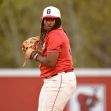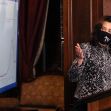On October 21, 2020, Trevor Till – class president, drum major, lead in the Seneca Illinois High School production of The Music Man, and a gifted pole vaulter, committed suicide, for reasons his mother, Lisa Mara Moore, termed “COVID isolation.” Cut off from school for the last months of his senior year, unable to participate in sports, and then isolated in a dorm room and taking classes virtually at the University of Illinois in the fall, Trevor finally succumbed to depression and took his life.
Two months later, attorney Laura Gorchoki filed suit against Illinois governor J.B. Pritzker in the La Salle County circuit court on behalf of Moore and four parents of Illinois high school students who are suffering from depression, anger and missed chances for athletic scholarships as a result of the cancellation of the 2020-21 winter sports season.
The suit alleges that the harm being done to these young athletes dates back to Governor Pritzker’s initial declaration of a statewide COVID-19 disaster on March 9, 2020. That declaration enabled him to issue a series of executive orders that determined which activities were permissible for the state’s population during the pandemic. A late fall increase in COVID-19 cases led the Governor to issue an executive order on November 18, 2020, reimposing highly restrictive “tier 3” mitigation levels, and effectively wiping out winter sports in Illinois high schools for the 2020-21 academic year.
The main argument of Moore v. Pritzker hinges on the fact that the state is allowing college and professional athletes to play basketball, football, and hockey, but is not allowing high school athletes the same opportunities. That is not only unfair, the suit alleges, but also illogical and not borne out by the empirical medical evidence, which shows that high-school-aged young adults have a much lower rate of COVID-19-related infection, hospitalization and death than their 18 to 29-year-old counterparts. Thus high school students can play these contact sports more safely than college and professional athletes:
The unequal treatment by Governor Pritzker against athletes in the 14 to 17 year old age group prohibiting them from playing high school interscholastic football, basketball and hockey…while allowing those aged 18 to 29 to play those sports, is without any rational basis and does not serve or relate to any legitimate state interest.
The principal relief requested by the suit is simple:
a preliminary and then a permanent injunction barring Governor Pritzker… from enforcing the cancellation of the interscholastic high school sports of football, basketball and hockey for the winter 2020-2021 season.
The complaint was filed on December 21, 2020. A week later, a motion for summary judgment was filed that clarifies some of the points covered in the original complaint and elaborates upon the legal grounds underlying plaintiffs’ argument - the decision to cancel high school sports while giving leave to the Fighting Illini, Bulls, Bears and Blackhawks to continue with their seasons violates the equal protection clause of the Illinois constitution:
The state cannot impose laws, regulations or rules which restrict the rights of one group of citizens while not restricting the rights of another group of citizens (or the rest of the citizens), unless there is a rational basis for this unequal treatment which is substantially related to a legitimate goal or interest of the state. If there is no rational basis for the unequal treatment, or even if there is, if it is not related to a legitimate goal of the state, then the unequal treatment is unconstitutional.
Although to date no response has been filed to the motion for summary judgment, Illinois Attorney General Kwame Raul did file a petition for a change of venue on January 6, 2021, requesting that the case be shifted to Sangamon County, in which Springfield, the state capital, is located. The move was proposed under the doctrine of forum non conveniens, despite the fact that two of the plaintiffs reside in La Salle county and none reside in Sangamon County.
The order approving the transfer of the case was signed on January 19, and, on January 22, a motion to dismiss was filed by the Attorney General. That move hit a snag a few days later when Judge John Madonia refused to accept the transfer of the case, largely on the grounds of forum shopping:
Because Sangamon County courts have consistently made rulings that are favorable to the State of Illinois, in previous litigation challenging governmental restrictions imposed to control the spread of COVID-19, concern has been sufficiently established for this court to believe that Defendant’s motion to change venue to Sangamon County is a not-so-veiled disguise to shop for a friendly forum to decide another COVID dispute involving State of Illinois activity restrictions that have been implemented in response to the continued spread of the coronavirus
The Attorney General responded by petitioning the state Supreme Court for leave to file a mandamus complaint to fix the proceedings in Sangamon County, arguing that Judge Madonia overstepped his authority when he refused to docket the case. The petition adds that
three of the five plaintiffs did not reside in LaSalle County, two of those three plaintiffs lived in counties closer to Sangamon County than LaSalle County, and plaintiffs had conceded that their action largely involved legal issues, so they would not have to call numerous witnesses who resided in LaSalle County. By contrast, the Governor, his counsel, and any potential state witnesses would be located in Cook or Sangamon County.
In turn, Gorchoki has filed her own motion for the Supreme Court not to grant leave for the mandamus complaint, to let Judge Madonia’s ruling that the case belongs in La Salle county stand, and to have the case tried where it began. Although the clock is ticking on winter sports, that is where the matter stands, pending the state Supreme Court’s ruling.






